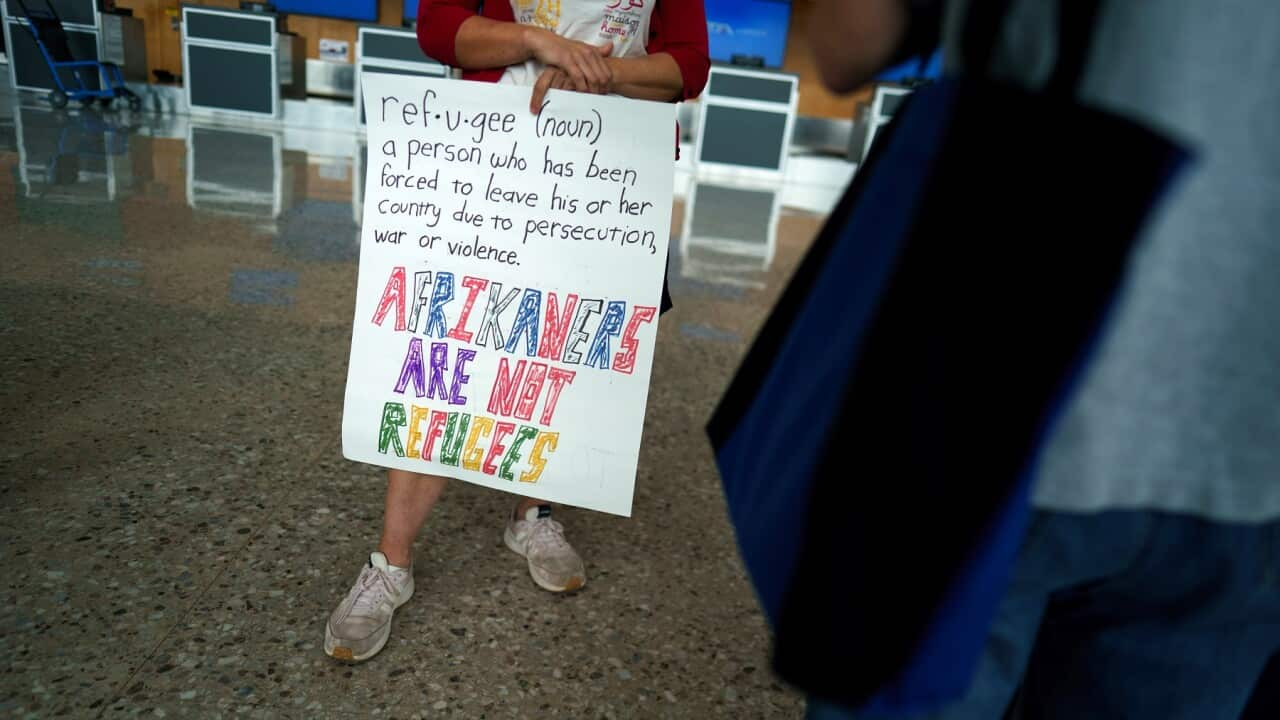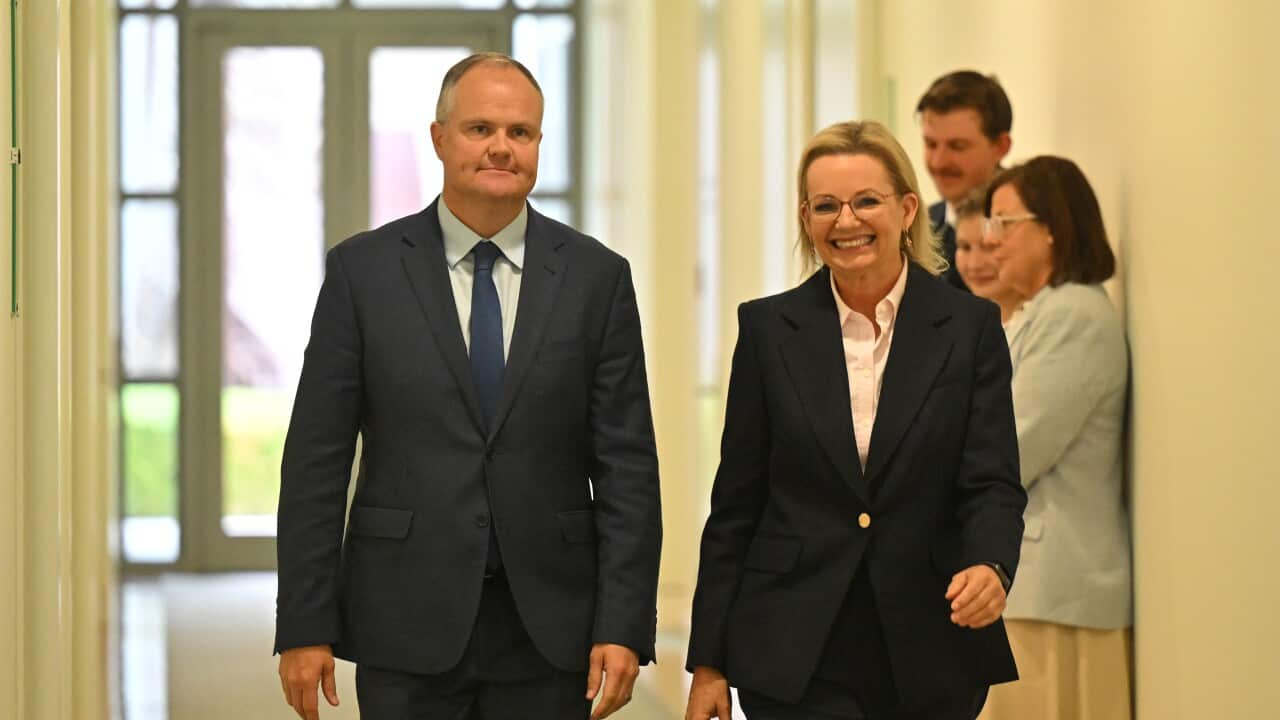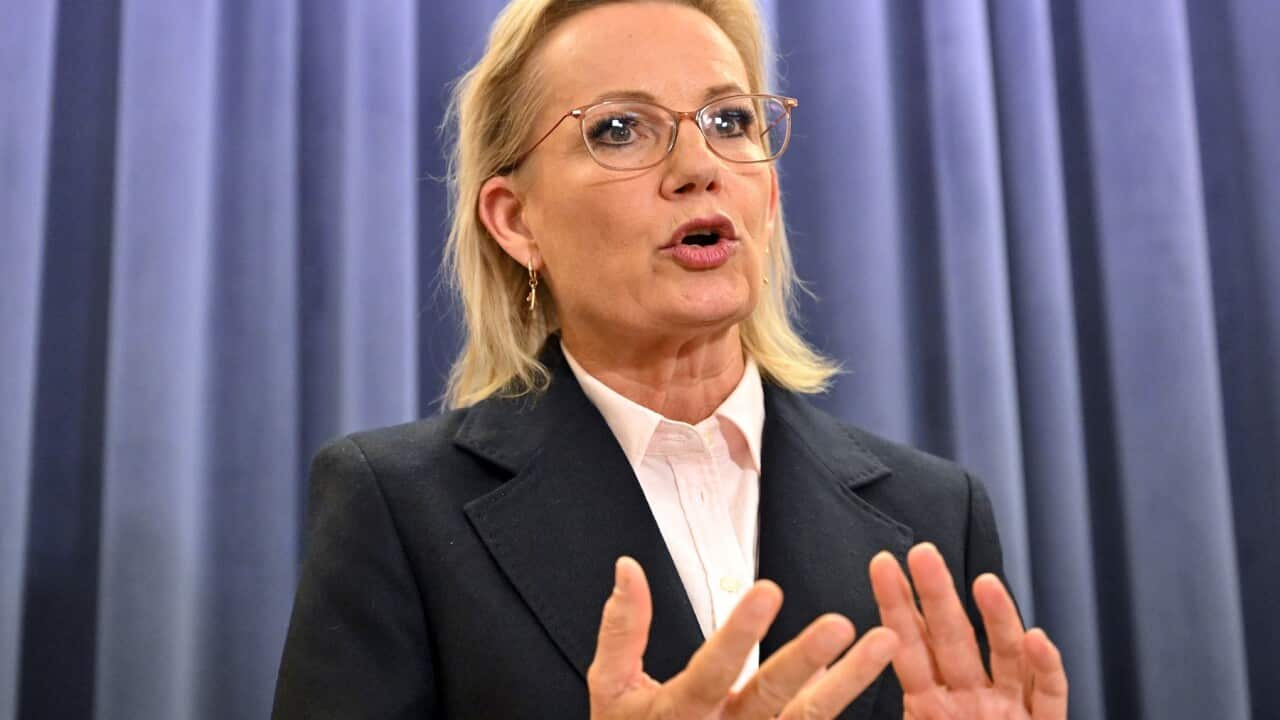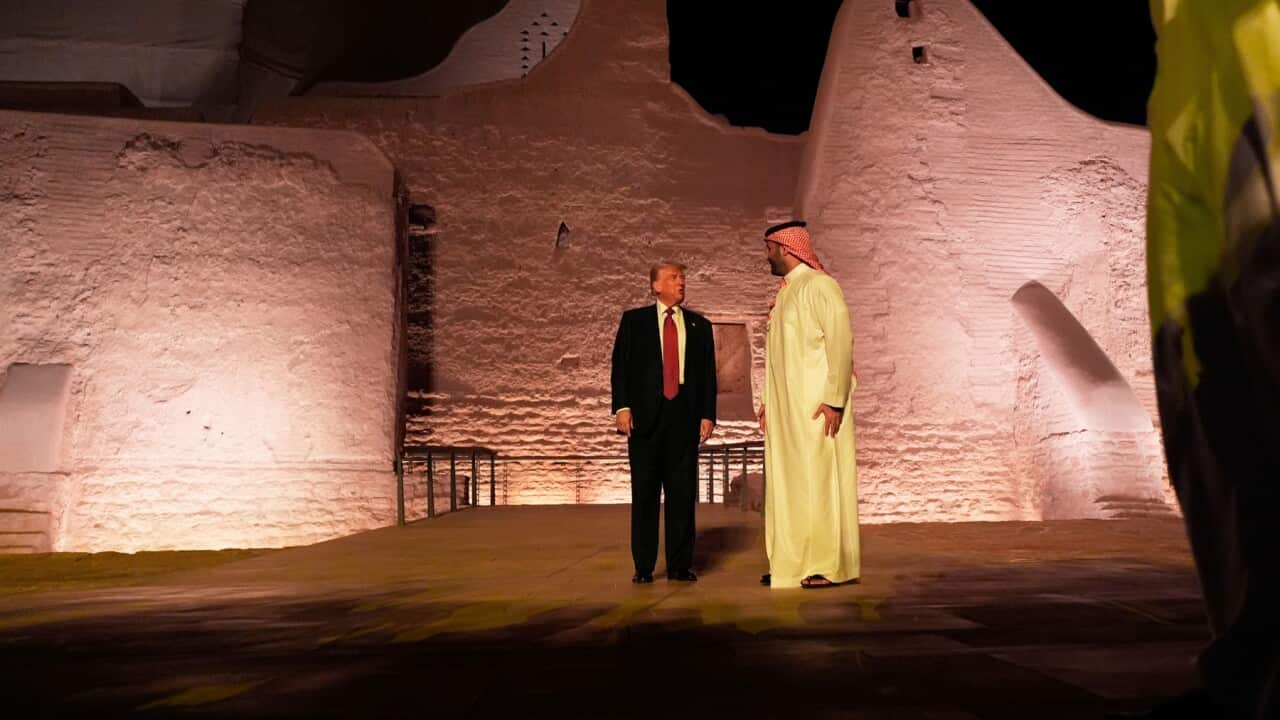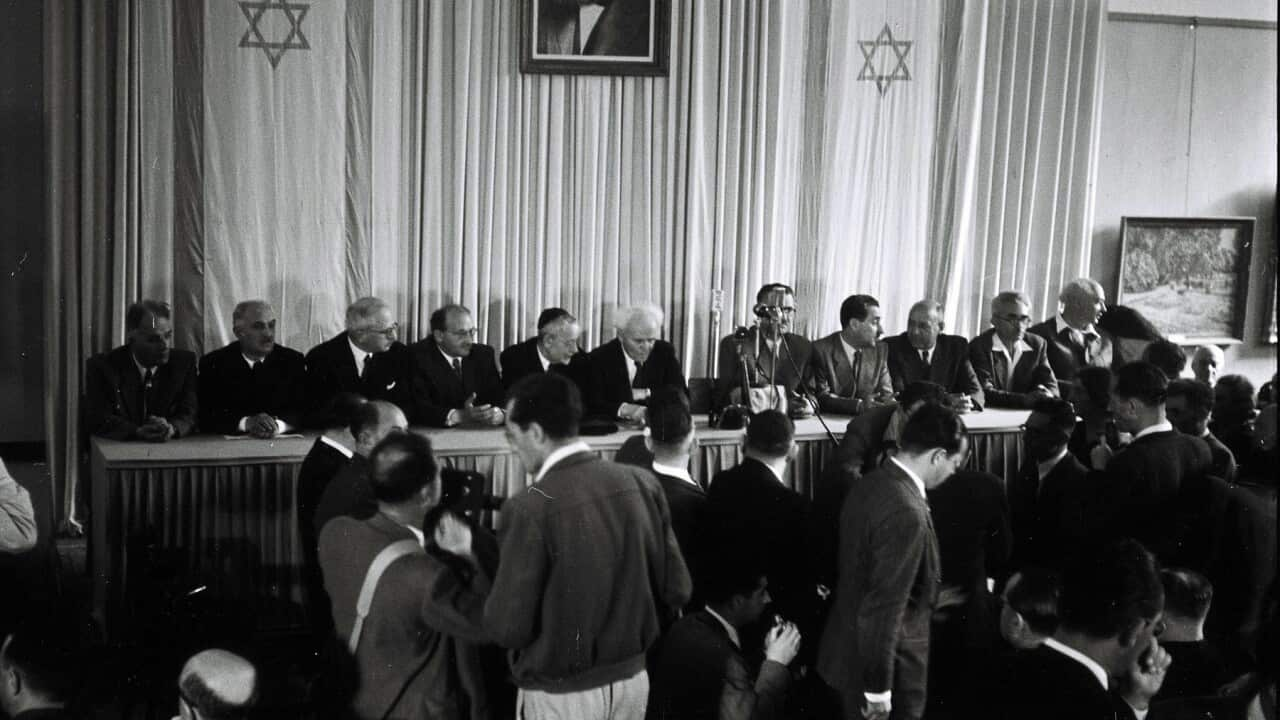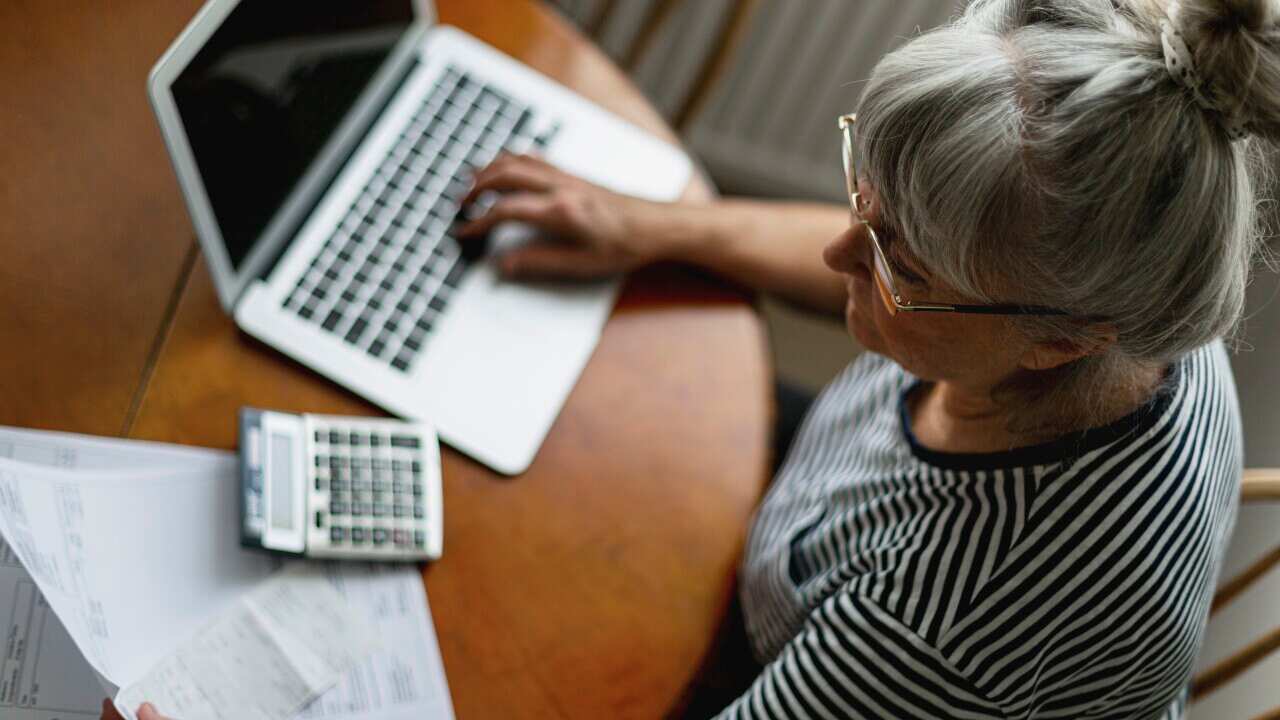TRANSCRIPT
LANDAU: "Welcome. Welcome to the United States of America."
PERSON: "Thank you."
That's Christopher Landau, the US Deputy Secretary of State.
He's at Dulles [[DULL-ess]] Airport near Washington to greet a group of 49 white South Africans arriving in the US on a private charter plane, after they were granted refugee status, which some Afrikaaners like life coach Katia Beeden say has offered them an opportunity.
"For South Africans to get news like that is quite left field. We've been forgotten. It's very hard for us to travel. It's very hard for us to get visas. So to suddenly hear that a country like the United States is offering us refugee status was a really big deal, and I was so excited. I felt so relieved. It just felt like a lifeline."
Christopher Landau says the Trump administration has deemed the group victims of racial discrimination.
The President himself has repeated these allegations a number of times.
"It's a genocide that's taking place that you people don't want to write about. But it's a terrible thing that's taking place... White farmers are being brutally killed and their land is being confiscated in South Africa."
The South African government says this is not true.
Ronald Lamola is the International Relations Minister.
"There is no data that backs that is persecution of white South Africans, or white Afrikaners, to be more particular, who are farmers. And the police statistics, which they are prepared to share and release, don’t back it."
South Africa's Ambassador to the US Ebrahim Rasool also appears to have made some attempts to address these claims.
Mr Rasool was expelled from the country in March after Secretary of State Marco Rubio accused him of being a race baiting politician who hated Trump.
"It was not our choice but we come home with no regrets. I want to say we would have liked to come back with a welcome like this if we could report to you that we had turned away the lies of a white genocide in South Africa. But we did not succeed in America with that."
Christopher Landau says that it's only natural the South African government would push back on Trump's allegations.
"It is not surprising, unfortunately, that a country from which refugees come does not concede that they are refugees. And unfortunately, you know, the South African government has not done what we feel is appropriate to guarantee the rights of these citizens to live in peace with their fellow South Africans, which is why under our domestic law, they were given refugee status."
But the government maintains the allegations are lies, and that there is a larger story at play here.
That larger story began most recently with an executive order signed by Donald Trump in February that cut financial assistance to South Africa and prioritised the resettlement of Afrikaaners.
"The South African situation is very, very dangerous and very bad for a lot of people. There's tremendously bad things going on, including the confiscation of property."
The order in itself was a response to the South African government's passage of a new law that allows the state to expropriate land for public purposes.
Ronald Lamola says the bill is part of the country's efforts to grapple with the impact of their colonial and apartheid past because racially-based inequality remains an everpresent concern, with white households holding on average 20 times the wealth of black households.
"This is what this law is about, to transform an imbalance on a fair and equitable basis. And we look forward to engagement with our US counterparts."
But white farmers like Friedl von Maltitz have told Al Jazeera their land is the basis of their wealth - and they worry it will be seized, in a land grab situation like the one that played out in neighbouring Zimbabwe.
"This Act has brought uncertainty in the sense that we're not really sure which property will be targeted for expropriation."
Political analyst T.K Pooe from the Wits School of Governance in Johannesburg says these tensions have become enmeshed in a complex and ugly conservative narrative that has spread in far right circles for years, echoed by Trump's white South-African born ally and adviser Elon Musk.
"And the narrative was like, listen, government legislation is anti-white. And I think probably four years ago it really took the nature, not only is it anti-white, but there is also an orchestration of violence against Afrikaner people, particularly those who are farming. So that was the narrative that had built up. You have to remember in President Trump's first term, this narrative by groups like Solidariteit and Afriforum, where they went to Washington to basically run this narration, that's where it started. I think in this second term he's probably acted on it."
Opposition has not just come from South Africa, though.
While Donald Trump has denied the refugee decisions are racially motivated -
"They happen to be white. But whether they're white or black makes no difference to me."
- the US Episcopal Church is among those to argue that Washington has blocked mostly non-white refugee admissions from the rest of the world.
Sean Rowe is the Church's Presiding Bishop.
"The refugees resettlement program, which we've been a part of for more than 40 years, was basically shut down in January. So almost no refugees have been admitted to the United States since the end of January. People that have been waiting for years and are still waiting, who have been of service to this country, who are persecuted, are waiting to receive entrance. And this particular group has been fast-tracked over top of all of these others."
The Bishop says this unfairness is why the Church has terminated its longstanding agreement with the US government to help refugees get settled in the US.
"I don't know what the administration's motivations for it is. I can't speak to that. But what it appears to us is that some people are being privileged over others. And it appears that white people are being privileged over people of colour for no real apparent reason, that data at least shows. So we're just - we feel like it's a line we've been asked to cross; our hand's been forced. And we feel like we're doing the honourable thing and just asking to be released from our obligations."
